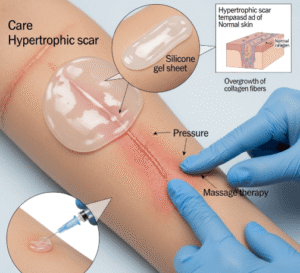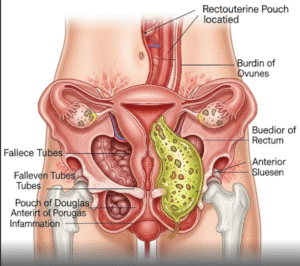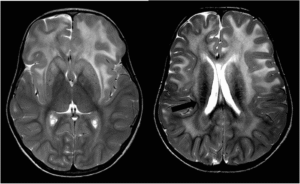Overview
Hodgkin lymphoma is a type of blood cancer that begins in the lymphatic system, an important part of the immune system. It is characterized by the presence of abnormal Reed-Sternberg cells in the lymph nodes. In Korea, Hodgkin lymphoma is less common than non-Hodgkin lymphoma but is treated with highly advanced therapies, including chemotherapy, radiation, immunotherapy, and stem cell transplantation. With world-class hospitals and cancer centers, Korea has become a leading destination for international patients seeking effective treatment for Hodgkin lymphoma.
What is Hodgkin Lymphoma?
Hodgkin lymphoma (HL) is a cancer of the lymphatic system that occurs when abnormal white blood cells (lymphocytes) grow uncontrollably. It commonly begins in the lymph nodes of the neck, chest, or underarms and can spread to other lymph nodes and organs. HL is most frequently diagnosed in young adults (ages 15–35) and older adults over 55. Early detection significantly improves survival outcomes, and Korea has some of the highest success rates in Asia due to modern treatment options.
Symptoms
- Painless swelling of lymph nodes (neck, armpits, groin)
- Persistent fatigue
- Fever and night sweats
- Unexplained weight loss
- Persistent cough or chest pain
- Itchy skin
- Increased sensitivity to alcohol with pain in lymph nodes
Causes
The exact cause of Hodgkin lymphoma is unknown, but it is linked to genetic mutations in B-lymphocytes. Possible contributing factors include:
- DNA mutations leading to uncontrolled cell growth
- Epstein-Barr virus (EBV) infection
- Weakened immune system
Risk Factors
- Family history of lymphoma
- Previous EBV or mononucleosis infection
- Male gender (slightly higher risk)
- Age (young adults and older adults most affected)
- Weakened immune system (HIV/AIDS, organ transplant patients)
Complications
- Increased susceptibility to infections due to weakened immunity
- Secondary cancers (such as leukemia or lung cancer) after treatment
- Heart or lung damage from chemotherapy or radiation
- Infertility (possible side effect of aggressive treatment)
- Long-term fatigue and reduced quality of life if untreated
Prevention
There is no guaranteed way to prevent Hodgkin lymphoma. However, reducing known risk factors may help:
- Strengthening immune health through balanced nutrition and regular exercise
- Avoiding unnecessary exposure to infections like EBV
- Regular medical check-ups for individuals with a family history of lymphoma
- Early medical consultation for persistent swollen lymph nodes or unexplained symptoms
Treatment Options in Korea
Korea provides cutting-edge cancer care, supported by internationally accredited hospitals and advanced oncology specialists. Treatment for Hodgkin lymphoma is tailored based on the stage and type of disease.
- Diagnosis:
- Lymph node biopsy (gold standard for diagnosis)
- PET-CT and MRI for staging and monitoring
- Blood tests for complete blood counts and organ function
- Medical Treatments:
- Chemotherapy: Standard regimens such as ABVD (Adriamycin, Bleomycin, Vinblastine, Dacarbazine) widely used in Korean hospitals
- Radiation therapy: High-precision radiation available at centers like Seoul National University Hospital
- Immunotherapy: Use of monoclonal antibodies (e.g., Brentuximab vedotin) for resistant or relapsed cases
- Stem cell transplantation: Both autologous and allogeneic transplants are available at major centers for patients with relapsed or refractory disease
- Supportive and Follow-Up Care:
- Psychological counseling and survivorship programs
- Long-term monitoring for recurrence or late effects of treatment
- Rehabilitation and nutrition support for cancer patients
- Leading Hospitals in Korea for Hodgkin Lymphoma:
- National Cancer Center Korea – Specialized in lymphoma and advanced clinical trials
- Asan Medical Center – Known for successful stem cell transplantation programs
- Samsung Medical Center – Equipped with precision oncology units and international patient care services
Korea’s holistic approach ensures that patients not only receive effective cancer treatment but also comprehensive care to maintain quality of life during and after therapy.













